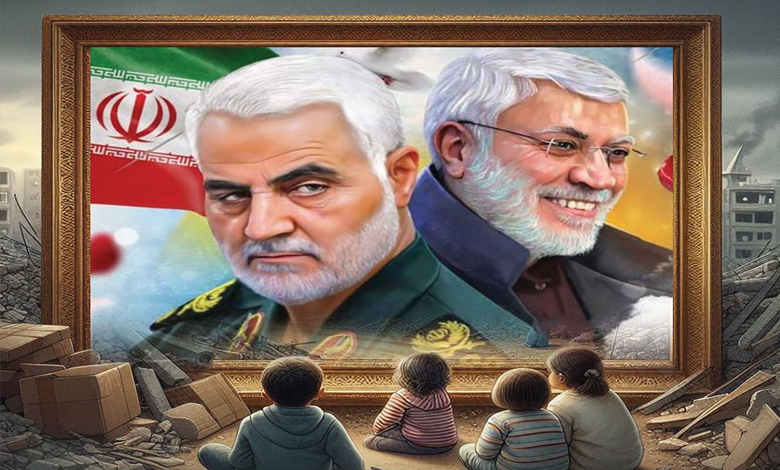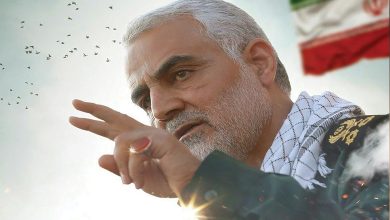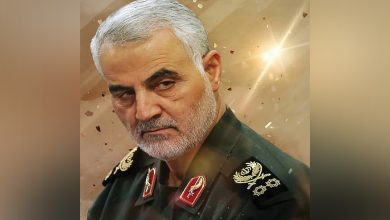Part Four: Soleimani and Religious Authority – A Special Bond with Najaf, Qom, and Tehran (Section Seven)

 Political Section
Political Section
Confronting Agents and Troublemakers
Although Martyr Soleimani did not compromise with the enemy, in internal Iraqi management he always preferred persuasion, reform, and soft containment over direct confrontation. However, he stood firmly against groups that:
-
Operated under the direct guidance of the CIA and Mossad,
-
Sought to divide southern Iraq or provoke against the religious authority,
-
Or demanded the dissolution of the Popular Mobilization Forces (PMF),
and he utilized intelligence and political tools to neutralize their plans. He believed that Iraq’s security was directly linked to the security of Iran and the entire axis of resistance.
Soleimani’s Role in Abdul-Mahdi’s Resignation
Ultimately, Grand Ayatollah Sistani did not explicitly call for Prime Minister Adel Abdul-Mahdi’s resignation in Friday sermons, but Abdul-Mahdi interpreted the messages as an invitation to step down and acted swiftly. Soleimani did not block this path; instead, he managed the transfer of power intelligently, minimizing tension while maintaining the cohesion of the resistance front in Iraq. Contrary to Western assumptions, he was not attached to any individual’s tenure; his concern was preserving Iraq’s independence and preventing the return of U.S. embassy influence.
Soleimani, the Commander as a Servant of the Religious Authority
If we want to illustrate Soleimani’s role in Iraq’s internal unrest, we should say he was:
-
Not just a military commander,
-
But a diplomat in military attire,
-
A humble soldier before the religious authority,
-
And a savior of Iraq from the brink of chaos.
He demonstrated that complex enemy projects could be thwarted without blind confrontation or empty slogans, relying instead on religious rationality and social understanding. His unparalleled role in calming the 2019 Iraqi unrest remains vivid in the memory of elites and citizens, and history will remember him as one of the architects of Iraq’s security.
His Conduct with Religious Scholars
Soleimani’s conduct with religious scholars showcased his multidimensional personality, combining deep faith, humility, and practical adherence to religious values. This conduct is highlighted not only in Iranian and Arab sources but also in foreign reports as one of his prominent traits.
Respect for the Religious Authority
He deeply believed that the maraji’ (religious authorities) were guardians of religion and guides of the faithful society. He repeatedly emphasized that they are the axis of Islamic unity and pillars of preserving religious values. According to hawzahnews.com, in a meeting with Ayatollah Sistani in Najaf, Soleimani entered with great humility, presenting himself as a mere soldier despite his heavy responsibilities as commander of the Quds Force. He provided detailed reports on the fronts of resistance and emphasized the importance of maraji’ fatwas in guiding military operations. Sistani praised Soleimani’s care for civilians and adherence to Sharia principles.
Humility toward Scholars and Students
One of Soleimani’s most prominent traits was his humility toward scholars and young students. According to Soleimani Aziz by Ali Shirazi, during a visit to Qom, he listened respectfully to Ayatollah Wahid Khorasani and humbly said when asked to explain the resistance fronts: “I am only doing my duty; your prayers, scholars, are our support.”
This humility was not limited to maraji’; it extended to students as well. A young student in the shrine of Lady Masoumeh recalled Soleimani standing respectfully, warmly greeting the students, saying: “You are the future of religion; do not withhold your prayers for us.” Multiple sources, including Tasnim News Agency, record this as an example of his manners and respect toward the religious community.
Foreign sources also noted this; Al-Mayadeen reported that in a meeting with Karbala scholars, when one called him “Commander of Islam,” he replied: “I am a small soldier of Islam, and my honor is to serve the scholars and the school of Ahl al-Bayt (AS).” This humility remained even at the height of his fame and military achievements.







